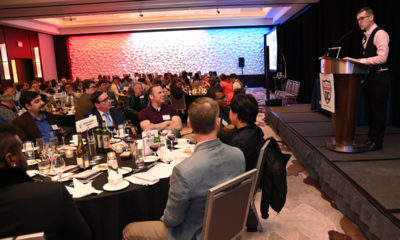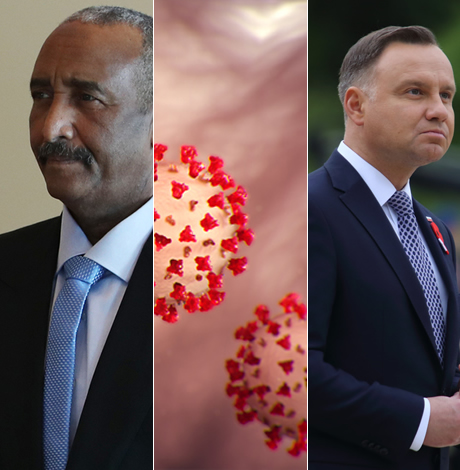Sports
‘Queens’ for a day
New documentary explores lives of out tennis players
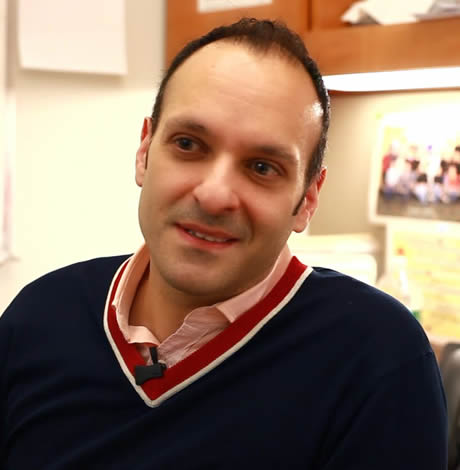
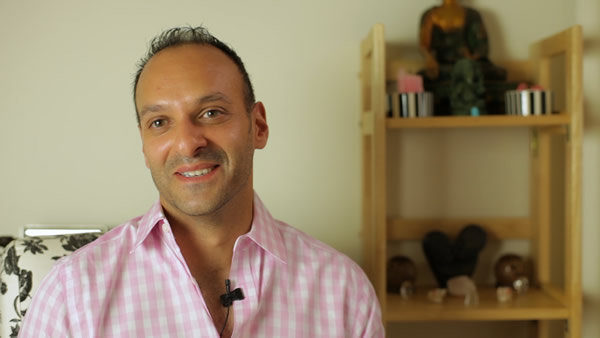
Out filmmaker Shiv Paul. (Photo courtesy Paul)
One of the things that continues to fascinate about the LGBT sports community is the diverse athletes who come together to form families. Shiv Paul has captured just that in his tennis documentary, “Queens at Court.”
The film follows four players from the Gay and Lesbian Tennis Alliance (GLTA) over the course of eight months, both on and off the court. The four players represent the wide spectrum of athletes on the tour. Featured in the film is a military veteran, a transsexual, a cross-cultural player and an overweight player.
The GLTA sponsors about 65 tournaments throughout the world and its membership is in excess of 8,000 players. Here in D.C., the Capital Tennis Association hosts one of the tournaments, the Capital Classic and one of its players, Chip Hines, is spotlighted in the film.
Paul was born in India and grew up in the market town of Epsom in England. His father introduced him to tennis at age 7 and enrolled him in local tennis schools. He left the sport behind while attending the University of Glasgow and after arriving in New York in 2006, he discovered the GLTA.
“I didn’t have much social structure when I moved to the United States,” Paul says. “I joined the local LGBT rugby, volleyball and tennis teams, but it was the tennis community that pulled me in.”
Paul’s first GLTA tournament was in New Orleans and he was fascinated and taken by the fact that the GLTA even existed. Subsequently he attended his first Gay Games in Cologne in 2010 and it was there that he initially felt the need to document the environment.
“I was completely surprised by the competitive nature of the Gay Games in Cologne,” Paul says. “It was a bigger and more meaningful experience than I was expecting. I love that LGBT sports allows people to return to a sport where they may not have been competitive.”
He began making the documentary about the GLTA athletes but as filming progressed, he realized it was more about adversity and exploring how athletes find their “sense of self.”
He didn’t intend to be one of the subjects of the film but at several of the screenings, the audience members insisted he shed some light on himself.
“It only seemed fair that I tell my own story since I was asking others to share their journey,” he says.
“Queens at Court” premiered in New York City at the Sage Center and in attendance at the event was the head of the United States Tennis Association (USTA) Diversity & Inclusion Program, D.A. Abrams. He arranged a screening for the USTA staff in White Plains, N.Y., and they agreed to screen the film at three stops on the Emirates Airlines U.S. Open Series, a series of hard court tournaments leading up to the U.S. Open.
“Queens at Court” was seen at the Washington, Toronto and Winston-Salem tournaments in the Series this summer.
Bob Koch, president of the Capital Tennis Association, was at the screening in D.C. at the Citi Open and says, “‘Queens at Court’ provides a neat snapshot into the LGBT tennis community. We are a tight-knit, welcoming and supportive group and the film captures that sense of community. The fact that the USTA was streaming the film serves to show their willingness to be inclusive.”
Paul, a recent Gay Games bronze medalist in tennis, says going forward he would like to coach workshops on promoting self-awareness, diversity and inclusion. He’s part of a team that is working with the Trevor Project on educational issues involving the transgender community such as finding the financial means needed to pay for reassignment surgery.
“It is cool to be part of something that results in change,” he says.
Members of the GLTA tennis community will be playing at the Capital Classic XXII on Sept. 13-15 in Washington.

FIFA has announced Saudi Arabia will host the 2034 World Cup, despite concerns over its human rights record that includes the death penalty for homosexuality.
The Associated Press reported FIFA confirmed the decision on Dec. 18. The AP noted Saudi Arabia is the only country that bid to host the 2034 World Cup.
“This is a historic moment for Saudi Arabia and a dream come true for all our 32 million people who simply love the game,” said Sport Minister Prince Abdulaziz bin Turki Al- Faisal, who is also president of the Saudi Olympic and Paralympic Committee, in a statement the Saudi Press Agency posted to its website.
Saudi Arabia is among the handful of countries in which consensual same-sex sexual relations remain punishable by death.
A U.S. intelligence report concluded Saudi Crown Prince Mohammed bin Salman “likely approved” the murder of Jamal Khashoggi, a Washington Post columnist, inside the Saudi Consulate in Istanbul in 2018. A federal judge in 2022 dismissed a lawsuit against Prince Mohammed after the Biden-Harris administration said he was immune to the lawsuit because he is the country’s prime minister.
Human rights activists have also criticized the Saudi government over the treatment of women, migrant workers, and other groups in the country.
“No one should be surprised by this,” Cyd Zeigler, Jr., co-founder of Outsports.com, an LGBTQ sports website, told the Washington Blade in an email after FIFA confirmed Saudi Arabia will host the 2034 World Cup. “FIFA, the International Olympic Committee, and many other world governing bodies routinely turn to authoritarian countries with terrible human-rights records to host major sporting events. There are simply few other countries willing to spend the billions of dollars it takes to build the needed infrastructure.”
Peter Tatchell, a long-time LGBTQ activist from the U.K. who is director of the Peter Tatchell Foundation, in a statement described FIFA’s decision as “a betrayal of the values that football should stand for: Inclusivity, fairness, and respect for human rights.”
“This is not about football; it’s about sportswashing,” said Tatchell. “The Saudi regime is using the World Cup to launder its international image and distract from its brutal abuses. By granting them this platform, FIFA is complicit in whitewashing their crimes.”
Qatar, which borders Saudi Arabia, hosted the 2022 World Cup.
Consensual same-sex sexual relations remain criminalized in Qatar.
“Saudi Arabia was the only country to bid for the 2034 FIFA World Cup,” said Zeigler. “So, until FIFA, the IOC (International Olympic Committee) and other governing bodies ban major human-rights violators from hosting, we’ll continue to see events like this in Saudi Arabia, China, Qatar, and other countries with terrible LGBTQ rights issues.”
The Blade has reached out to FIFA and the Saudi government for comment.
Sports
Controversy grows over member of Calif. university’s women’s volleyball team
Coach suspended, NCAA sued, more rivals forfeit
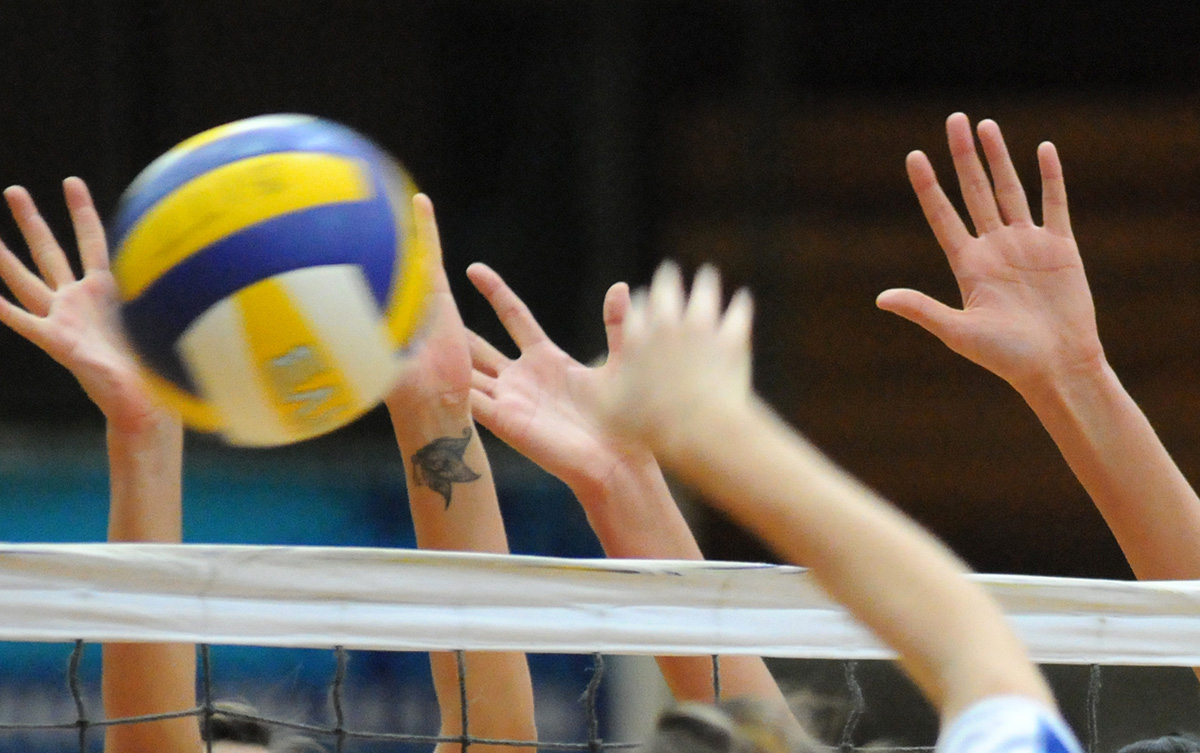
San Jose State University’s women volleyball team has collected yet another W by forfeit — its seventh so far this season — as controversy swirls around one player on its roster. She’s one of the seniors, and she has been dragged in the media by her own co-captain, who outed her as transgender.
The Washington Blade is not naming this student athlete since neither she nor the school have confirmed or even commented on her gender identity.
SJSU visited San Diego last weekend for a match before the Aztecs’ biggest home crowd of the season — including protesters waving “Save Women’s Sports” banners and booing one player on the Spartans team in particular: The woman who is reported to be trans.
Security was tight, with metal detectors and extra guards and police officers present. Video posted to YouTube by a right-wing sports media site — which names the player — shows an angry fan arguing with security about his First Amendment rights.
Video recorded during Nov. 9’s game shows a player for San Diego was injured following a spike by the player rumored to be trans, and had to be helped off the court. However, the video clearly shows that player was injured by landing poorly on one foot, not as a result of the spike.
The Aztecs defeated the Spartans 3-1, but San Jose has still punched its ticket to the conference finals, thanks to its record number of forfeits.
Wyoming was set to visit SJSU Thursday, but for the second time is joining other universities that have forfeited games against the Spartans, all without providing a reason. Boise State announced it will forfeit an upcoming match set for Nov. 21, its second forfeit against SJSU.
In September, the Spartans’ co-captain, senior Brooke Slusser, outed her own teammate, the player at the center of this controversy, in joining a federal lawsuit against the NCAA spearheaded by anti-trans inclusion activist and former college athlete Riley Gaines.
Slusser said in the lawsuit and in subsequent interviews that the player in question shouldn’t be on her team. The suit claims the NCAA’s policy on trans athletes violates Title IX by allowing “men” to compete in women’s sports and use women’s locker rooms where they display “full male genitalia.”
The NCAA policy for trans athletes participating in women’s volleyball aligns with that of USA Volleyball, which requires trans female athletes to suppress their testosterone below 10 nmol/L for a period of one year before competition. That is also how the NCAA determines eligibility. SJSU has stated repeatedly that all its players are eligible.
The lawsuit also asks the NCAA to revoke any titles or records won by trans female athletes in women’s competitions, which seems to be specifically aimed at stripping out trans NCAA champions Lia Thomas and CeCé Telfer of their titles in swimming and track and field, respectively.
Prior to this season, the player rumored to be trans did not attract any attention other than being a successful starter, like Slusser. But now that she is in the media spotlight, Slusser has come forward to tell right wing media, including Megyn Kelly, why she feels another woman two inches taller than she is poses a danger.
“I don’t feel safe,” Slusser said on “The Megyn Kelly Show” last month. “I’ve gone to my coaches and said I refuse to play against [her] … It’s not safe.”
In the video, both Kelly and Slusser refer to the player as “him” and a “man,” and name her.
Now comes another twist: San Jose State University suspended associate head coach Melissa Batie-Smoose with pay, indefinitely, after she filed a Title IX complaint against SJSU. She claims the player Slusser identified as trans conspired with an opponent to help the team lose a match and injure Slusser. Batie-Smoose named the player in question in her complaint and on Sept. 23, joined the same lawsuit that Slusser is now a part of.
“Safety is being taken away from women,” Batie-Smoose told Fox News. “Fair play is taken away from women. We need more and more people to do this and fight this fight because women’s sports, as we know it right now will be forever changed.”
Media reporting on the suspension, including Fox News, continue to name the athlete in question, with some also reporting what they say is the athlete’s birth name.
San Jose State released a statement following the suspension of Batie-Smoose: “The associate head coach of the San Jose State University women’s volleyball team is not with the team at this time, and we will not provide further information on this matter,” the team said.
SJSU Coach Todd Kress told ESPN that reports saying that any member of the Spartans colluded with their opponent are “littered with lies.”
The Spartans are currently among the top six finishers in the Mountain West Conference that will qualify to compete in the conference tournament scheduled for Nov. 27-30.
Sports
University of Nevada forfeits game rather than play possible trans athlete
Women’s volleyball team cites ‘not enough players to compete’

For the fifth time, a women’s volleyball team has chosen to forfeit instead of play against San Jose State University, because of rumors that one of its players is a transgender woman.
The University of Nevada, Reno, officially announced on Friday that it would forfeit Saturday’s game against the SJSU Spartans. This followed an announcement by Wolf Pack players who said they “refuse to participate in any match that advances injustice against female athletes,” without providing further details.
Originally, Nevada’s athletic department had said the program would not back out from the match, citing state equality laws, but also said that no players would be disciplined if they chose to not participate.
“The vast majority of our team decided this is something we wanted to take a stand on,” Nevada team captain Sia Liilii told Fox News. “We didn’t want to play against a male player.”
“In all of our team meetings it just kept coming back to the fact that men do not belong in women’s sports. If you’re born a biological male, you don’t belong in women’s sports. It’s not even about this individual athlete. It’s about fair competition and safety for everyone.”
Outsports and several conservative and right-wing websites have identified the player who is rumored to be trans, but the Washington Blade has opted to not do so since she herself has not come forward to either acknowledge or deny she is trans.
As ESPN reported, Nevada follows Southern Utah, Boise State, Wyoming, and Utah State in canceling games against the Spartans. Boise State, Wyoming, Utah State, and Nevada are all members of the Mountain West Conference, so those contests are considered forfeits and count as valuable wins in the league standings for San Jose State.
Riley Gaines, the anti-trans inclusion activist for the Independent Women’s Forum has joined the chorus in claiming the Spartans’ roster includes a trans woman.
If you're wondering why teams are forfeiting against @SJSU, here's the reason.
Last night another woman was smashed in the face by a kill from a man posing as a woman.
It's unfair, unsafe, and regressive, yet our "leaders" remain silent. pic.twitter.com/OS15AFxQsp
— Riley Gaines (@Riley_Gaines_) October 18, 2024
Despite this, neither San Jose State nor any of the other forfeiting teams have said the university’s women’s volleyball team has a trans player. SJSU issued a statement defending its roster.
“Our athletes all comply with NCAA and Mountain West Conference policies and they are eligible to play under the rules of those organizations. We will continue to take measures to prioritize the health and safety of our students while they pursue their earned opportunities to compete,” the statement read.
The governors of Idaho, Nevada, Utah, and Wyoming — all of whom are members of the Republican Party — have issued public statements supporting the cancellations, claiming it’s in the interest of fairness in women’s sports. This week, Donald Trump, the GOP presidential nominee and former president, spoke at a Fox News televised town hall when asked about trans athletes in women’s sports.
“We’re not going to let it happen,” Trump said. “We stop it, we stop it, we absolutely stop it. We can’t have it. You just ban it. The president bans it. You don’t let it happen. It’s not a big deal.”
-

 El Salvador4 days ago
El Salvador4 days agoGay Venezuelan makeup artist remains in El Salvador mega prison
-

 State Department3 days ago
State Department3 days agoHIV/AIDS activists protest at State Department, demand full PEPFAR funding restoration
-

 Brazil3 days ago
Brazil3 days agoUS lists transgender Brazilian congresswoman’s gender as ‘male’ on visa
-

 District of Columbia4 days ago
District of Columbia4 days agoTwo charged with assaulting, robbing gay man at D.C. CVS store

